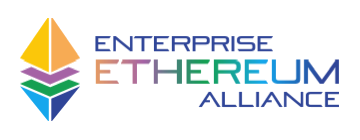Educating the Business Community About the Power of Ethereum
The Ethereum business ecosystem has seen rapid growth in recent years, which speaks directly to the technology’s value and relevance in today’s world. However, the only way to ensure that growth continues is to equip a wider range of business professionals with the education and tools necessary to begin building on Ethereum.
At the EEA, we put education front and center, and we’re working hard to arm businesses with the information, training and support they need to enter the Ethereum space and elevate their organizations with this valuable resource.
That’s why we’re so excited to share our series of educational primers, designed specifically for those new to the Ethereum ecosystem. These primers will offer introductions to many of the different concepts and facets of Ethereum (and blockchain as a whole) to help more professionals get started on the platform.
Is there a particular topic you think we should explore in an upcoming primer? We want to hear from you. Email us at [email protected] to share your ideas.
Watch our short introductory video to hear from EEA Executive Director Dan Burnett about the details and value of this program.
Understanding Web3 for Business
What is Web3?
Web3 refers to the next generation of the Internet. It proposes a decentralized, blockchain-based system that shifts from the current model, in which big, centralized platforms control content and data, to one in which users have more control. While still in its early days, the Web3 approach has tremendous implications for business use and offers a range of benefits, including cost savings and increased security.
Background
To understand Web3 and its implications for the business world, it’s important to first understand how the Internet has evolved since its inception. The first version of the Internet, today commonly referred to as Web1, was focused completely on the passive intake of information. It was limited to static web pages that users could glean information from but not contribute to. The next stage in the Internet’s evolution, known as Web2 (or Web 2.0) began around 2004. With Web2, users could not only take in information but also create and share their own content, a change that went hand-in-hand with the rise of social media platforms. However, with these updates came new data issues. As users created and shared content, they also made their data available to large, centralized platforms, which could then build repositories of this personal data and use it for their own benefit and profit. In this way, individuals lost control over their data and had no say in how it was utilized.
Now, with Web3, we enter what many believe will be the next iteration of the Internet. Web3, a term coined by Ethereum co-founder Gavin Wood, refers to a decentralized, blockchain-based system that puts more power into the hands of individuals and cuts out middlemen that introduce complexities, add additional fees and take control of user data. In a Web3 world, actions that once required big, centralized platforms to accomplish can be executed via software running on a decentralized platform such as Ethereum, so there’s no risk of any overseeing party gaining control of personal information.
With Web3, instead of your data being collected and utilized for profit by centralized platforms, it lives on the blockchain, where it cannot be manipulated by others and is accessible only through a personalized crypto wallet that authorizes access via a unique, secure password. You use the wallet to interact with Web3 applications and communities, but your data stays put. While your activities are public on the blockchain, wallet transactions are identified only by account number, which helps increase anonymity.
Web3 is considered by many to be a better way for users to manage their data, and it amounts to better distributed ownership of the web overall. Web3 also has the potential to revolutionize business and carries a number of business benefits. Arguably the biggest benefit relates to transparency in business/customer relations. The blockchain basis of Web3 allows for the creation of reliable, public transaction records that cannot be manipulated. With all transactions accessible and visible to all parties, companies are easily held accountable, which helps build trust with customers. Additionally, the immutable nature of the transaction records helps ensure compliance throughout the interaction. Through the use of smart contracts and decentralized applications (DApps), Web3 also cuts out middlemen like banks and other third parties, which helps drive efficiencies and lower costs.
Another Web3 business benefit relates to security. As mentioned above, wallets help increase individual privacy – an important feature – but the Web3 approach also improves overall network strength. Due to their distributed nature, blockchains don’t have a single point of failure, as the platform is supported by countless nodes around the globe. This means a Web3 system is much more resilient against adverse actors and potential threats.
All that said, it’s important to note that Web3 won’t be changing the world immediately. It’s still being developed and won’t be fully mature for at least a few years down the road. Also, while many believe it has the potential to revolutionize the Internet, there are some naysayers. Some in the space play off the idea of Web3 as merely a way for the blockchain community to push its agenda and recruit converts. Others question blockchain’s ability to manage the volume of data required to replace the current system, arguing it is a slower and less efficient technology than today’s standard databases. Of course, there are valid rebuttals to these arguments, and as Ethereum continues to mature it is steadily addressing those concerns.
Whatever your stance, it’s undeniable that there exists significant excitement around the potential of Web3 and how it could reshape the Internet as we know it. For businesses, this includes cost savings, increased security and improved customer relations, significant reasons to keep a close eye on this developing space.
